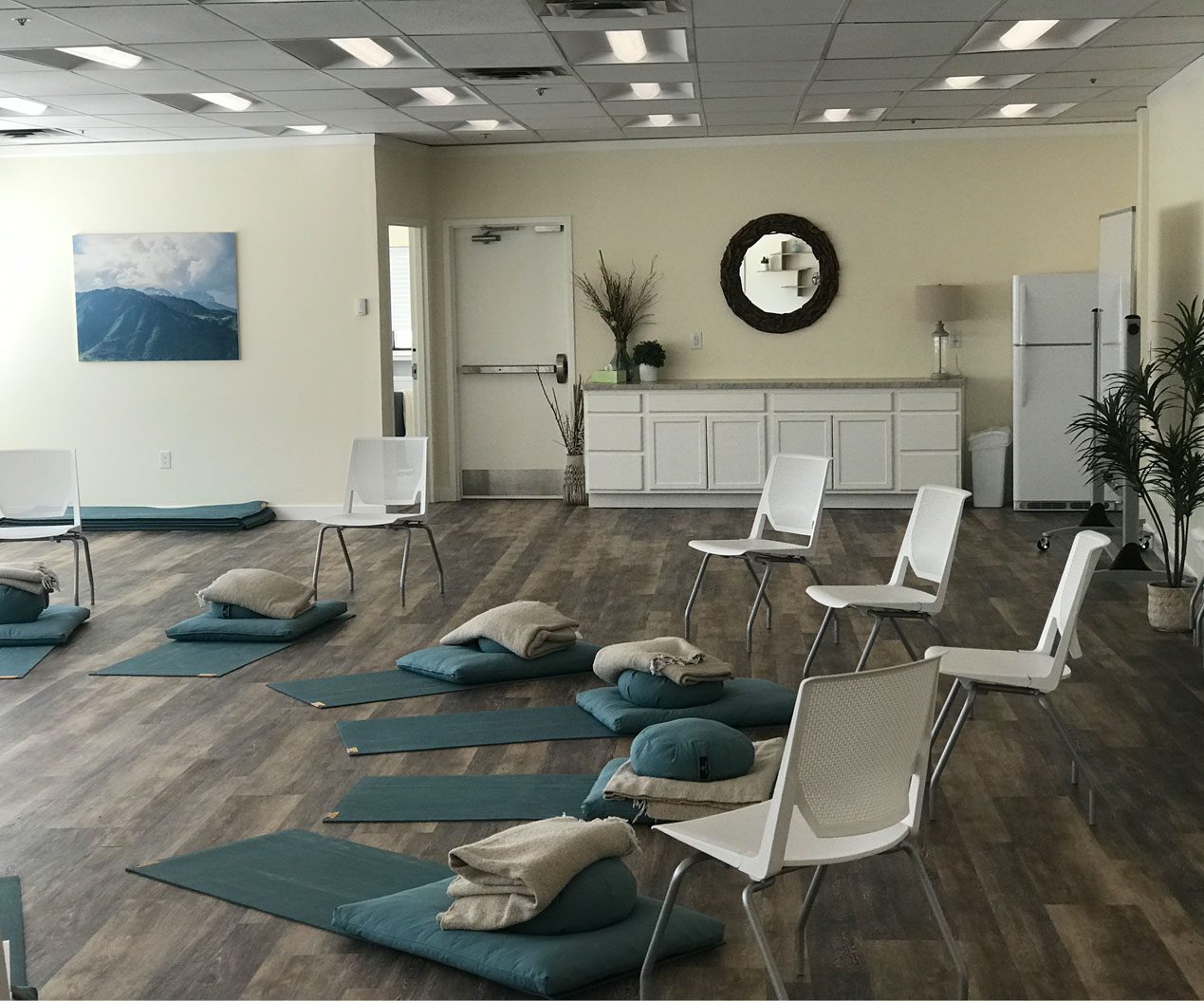When you’re struggling with mental health issues, you may feel as though you are completely alone. Finding a support system can be beneficial to most people, and one of those supports can come from group therapy. Like traditional psychotherapy, group therapy gives you the opportunity to talk through your stresses, symptoms and concerns in a safe environment but with other individuals and a therapist rather than one-on-one with a therapist.
For many people, group therapy is a positive addition to their treatment plan. It may give them a sense of community that they are lacking, along with the opportunity to build relationships with others who understand what they are going through. Read on to find out more about group therapy and if it’s the right option for you or your loved one.
Group Therapy Basics
Group therapy is a type of psychotherapy involving at least one therapist and multiple clients, usually between five to 15. Groups often meet weekly for an hour or two, giving each individual attending the opportunity to share if they would like. Some people attend groups to simply listen, while others enjoy the chance to speak freely about their issues.
In general, most groups are intended to help attendees with a specific issue, such as eating disorders, anxiety, depression, substance abuse or low self-esteem. There are also groups for those dealing with the loss of a loved one or those who are struggling with heavy grief. When a therapist recommends group therapy to a client, they will typically suggest a group that is meant for people of similar ages and personal concerns. This allows attendees to feel more comfortable sharing with the group.
Benefits of Group Therapy
The idea of talking to a group of strangers about your issues may seem intimidating and even counter-productive, but there are many benefits of group therapy:
- Support System: As mentioned above, groups can become a support system for those struggling and a place where sharing can take place without judgment. If you are the only person in your family or friend group dealing with mental health concerns, you may feel isolated and misunderstood. Group therapy can help you realize that there are many others out there going through similar situations.
- Affordability: For many, paying for individual therapy sessions can become a financial burden. Group therapy is often much more affordable, giving those struggling to pay for therapy a lower-cost option.
- Mentors: Those new to group therapy may need help from members who have attended longer to realize what the outcome of this work can be. Observing success stories from others in the group can motivate new attendees to keep with it and find their own successes.
- Observation: In individual therapy sessions, a therapist is not able to really watch how their client interacts with other people. Group therapy is a great place for therapists to observe interpersonal behavior and provide feedback to their clients. This can help people make changes where necessary to improve their social interactions.
- Safe Haven: For those with mental health or behavioral issues, group therapy can become a safe haven where they are able to fully express their feelings and the behaviors that are of concern in their lives without fear of judgment. Others in the group understand each other and what they are going through in a way that outsiders may not.
The benefits of group therapy are numerous, and while it may feel uncomfortable at first, most people come to enjoy their time attending groups.
How Does Group Therapy Work?

While all group therapy sessions differ, there is a general framework that most will follow. Most group therapy sessions take place in a larger room with the chairs placed in a circle. This allows everyone attending to be able to see one another and hear each other when members are speaking. A session may start out with each attendee introducing themselves and explaining why they have chosen to attend. If they have attended other meetings, they may share experiences and progress that they have had since then.
Exactly how the group therapy session is conducted will be determined by the therapist running the group. All therapists have different styles and techniques that they will use to plan the session. Some may be more free form where members simply share with one another, while others may have a more structured outline that encourages members to learn and practice new skills with each other.
Therapy meetings for groups may be either open or closed sessions. In open sessions, new participants are invited to attend at any time. In a closed session, only the same group members are welcome to attend from week to week. Whether a session is open or closed usually depends on the type of therapy offered and the types of issues covered.
Types of Group Therapy
Similar to individual therapy, group therapy may utilize different clinical methods. This will depend on the therapist running the group as well as the mental health condition it is addressing. Some of the most common types of group therapy include the following:
- Psychoeducational Groups: These groups are meant to help attendees learn more about their disorders and educate on ways to cope, often through cognitive behavioral therapy techniques.
- Cognitive Behavioral Groups: A CBT group centers on helping clients identify and change thinking patterns, behaviors and responses in a setting with others who are dealing with the same issues.
- Interpersonal Groups: These groups focus on improving social interactions and interpersonal relationships; they may provide education on how to make changes to better your mental health through relationships.
- Support Groups: These may go beyond those dealing with mental health concerns to include family members or those dealing with grief or trauma. They are usually very specific to certain conditions or issues, such as suicide loss or bereaved parents.
- Skills Development Groups: Those with mental health conditions who need assistance in building life skills may attend a skills development group. It provides a safe place to practice skills before utilizing them in real-world situations.
There are many different group therapy options to choose from and it may take some trial and error to find the right one for you.
How Do I Join a Therapy Group?
Most often, your individual therapist will suggest a group therapy option that would benefit you. Local hospitals, medical clinics and therapy centers are your best place to start. When deciding on what group to join, it’s beneficial to do a little research. Find out which groups are open or closed, based on which option you’d prefer. Ask about how many people attend, especially if you want to join a small group. When you feel comfortable, attend at least two meetings to really get a feel of whether it is right for you.
Ready To Try Group Therapy?
If you want to give group therapy a try, contact Davis Behavioral Health. We offer group therapy for families, children, teens and more. Remember, group members will start out as strangers, but over time you may come to view them as trusted and supportive friends who may even feel like family.
Q&As for "What Is Group Therapy and How Does It Work?"
I feel isolated and misunderstood by friends and family. Can group therapy provide a sense of belonging?
Absolutely! Group therapy offers a safe space to connect with others facing similar challenges. Davis Behavioral Health offers various groups, including those for anxiety, depression and grief, fostering supportive communities. #grouptherapybenefits #mentalhealthcommunity
Is group therapy cheaper than individual therapy? What cost options are available?
Yes, group therapy is often more affordable than individual sessions. Davis Behavioral Health offers various payment plans and accepts insurance to make group therapy accessible. #affordabletherapy #mentalhealthsupport
I'm nervous about speaking in front of others. Will others judge me in group therapy?
Confidentiality and non-judgment are core principles of group therapy. The therapist facilitates a supportive environment for sharing and growth. Davis Behavioral Health prioritizes a safe and welcoming space for all participants. #grouptherapysafety #nonjudgmentalzone
What type of group therapy would be best for anxiety? What skills could I learn?
Cognitive Behavioral Therapy (CBT) groups are common for anxiety, teaching coping mechanisms and managing negative thought patterns. Davis Behavioral Health offers various CBT-based groups tailored to specific needs. #anxietytreatment #cbtskills
Can group therapy help me improve my social interaction skills?
Interpersonal therapy groups focus on communication, assertiveness, and building healthy relationships. By practicing with others, you can gain valuable social skills. Explore group options at Davis Behavioral Health. #socialskillstraining #grouptherapydynamics


